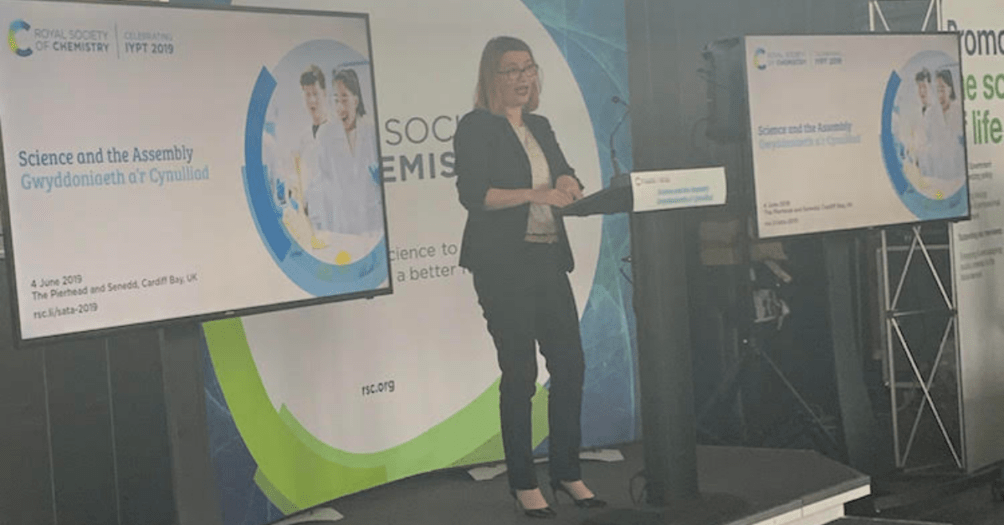The event is hosted annually in the Senedd and Pierhead Building in Cardiff Bay and offers companies and projects a showcase for their activities. Organized by the Royal Society of Chemistry, representatives from science-related industries came together with representatives from educational establishments across Wales, all of whom had travelled to Cardiff to hear keynote speakers and to learn from each other about all the different engagement that is undertaken to promote the STEM agenda across the country.
Operations Manager Stewart Powell and Programme Manager Julie Walters met with other projects, Government Ministers, and other key figures from Industry. The ultimate goal was to forge new relationships and partnerships and to raise the profile of STEM as a fundamental and essential part of the Welsh economy.
This year’s event was particularly pertinent and well-timed, with its focus on education and skills. This follows the recent launch at the end of April of the draft Curriculum for Wales, delivering against the recommendations of Successful Futures, the 2015 independent review of curriculum and assessment arrangements in Wales. The new curriculum sees sweeping changes to what is currently delivered in schools. Most notably for Technocamps, computational thinking is recognized as a cross-curricular skill as part of the Digital Competence Framework, with computation and other aspects of computer science represented in the new Science and Technology Area of Learning and Experience from ages 3-16.
The event provided an opportunity for people to see how Technocamps could play a role in both the delivery of this new curriculum and in helping teachers to prepare for the changes ahead of its implementation in 2022.
Tom Crick MBE, Professor of Digital Education & Policy at Swansea University was one of the keynote speakers at the event and he has been instrumental in shaping the new Curriculum for Wales.
“Wales is on the cusp of major curriculum reform, especially in Science & Technology, part of a wider national mission for education and skills that underpins our future societal, cultural and economic aspirations. Swansea University has played — and will continue to play — a leading role in much of this work, from impactful national STEM enrichment activities with Technocamps, through to a new research-led School of Education offering initial teacher education from September 2020.”
Tom Crick MBE
